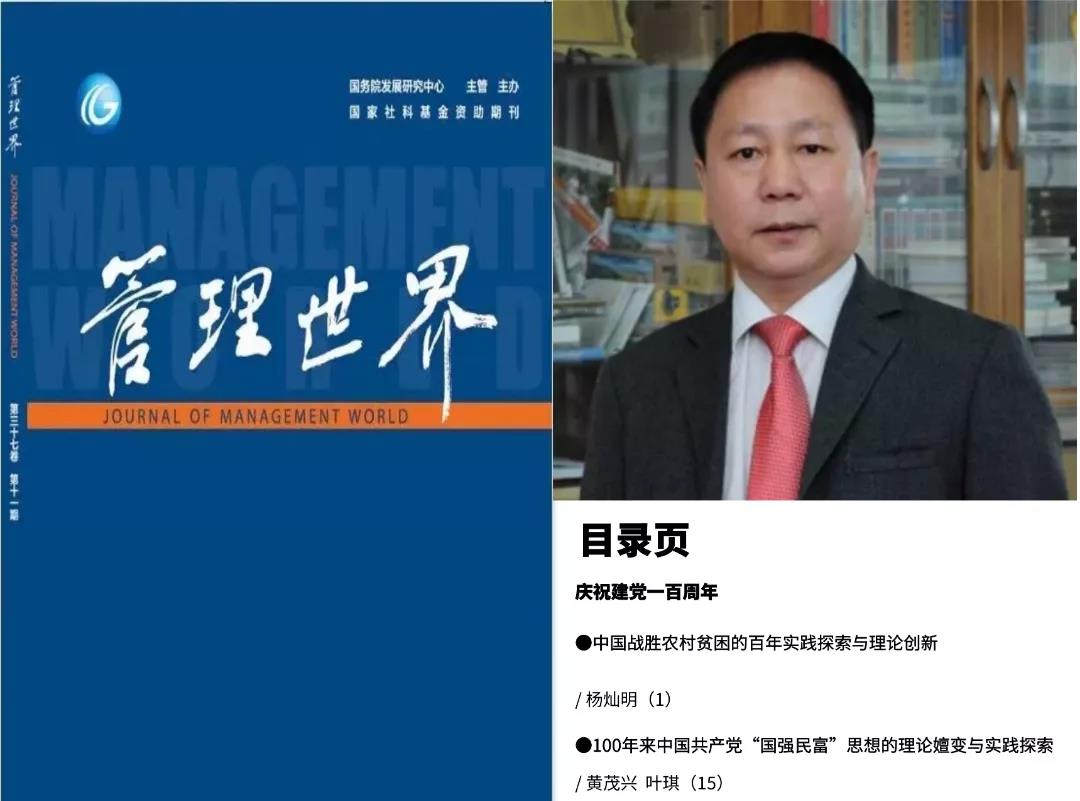China's Century of Practical Exploration and Theoretical Innovation in Eliminating Rural Poverty, written by Professor Yang Canming, President of ZUEL and Director of IIDPF, has been officially published in the top journal Management World, Issue 11, 2021. Based on the evolution of China's economic and social development, this paper focuses on the issue of rural poverty in China. By grasping the historical logic, institutional logic, theoretical logic and practical logic of China's poverty reduction practice, it concludes that China's valuable historical experience in eliminating absolute poverty and achieving overall prosperity provides a theoretical basis for the international community, especially developing countries, to learn from and draw on "Chinese wisdom".

  This paper concludes four main reasons for China's victory over rural poverty: (1) in terms of poverty reduction theory, on the basis of the Chinese version of Marxist anti-poverty theory, it has innovated and developed a "pro-poverty" theory of poverty reduction, which emphasizes both economic development and comprehensive protection. (2) In terms of poverty reduction philosophy, the "people-centred" approach has always been taken as the philosophy and fundamental purpose of poverty reduction; (3) In terms of institutional safeguards, the socialist system adopted by China has provided solid institutional safeguards for overcoming poverty; (4) In terms of poverty reduction mechanism, the poverty reduction model has gradually changed from a government-led to a multi-partite mechanism involving "government, market and society", forming a multi-partite mechanism for poverty reduction. (4) In terms of poverty reduction mechanism, the poverty reduction model has gradually changed from a government-led to a multi-partite mechanism involving the government, the market and society, thus forming a multi-partite synergy for poverty reduction.
  This study has drawn the following five policy implications: (1) The "four-in-one" comprehensive poverty reduction theoretical system for eliminating absolute poverty is also suitable for relative poverty management, which requires more emphasis on the joint development of "government, market and society" to stimulate the internal motivation of low-income people to seek development. (2) While carrying out relative poverty management, the Party and the government should also focus on the multidimensional welfare and consumption of the low-income population, take into account the cost of management and the living conditions of low-income families, focus on the sustainability of the quality of poverty eradication, and realize the normal development of poverty management (3) Increase efforts to support both the will and the wisdom of the low-income population, and improve the quality of poverty management." (4) The advantages of social organisations in alleviating poverty should be given full play (5) The efficient administrative mobilisation capacity and the "people-centred" development concept of precise poverty alleviation can not only be applied to poverty alleviation in rural areas, but also to the development of the countryside. It can also be widely applied to all aspects of national governance.
  China's achievements in poverty reduction have accelerated the process of global poverty reduction, created rich experience in poverty reduction, formed an organic unity of China's road, theoretical, institutional and cultural self-confidence towards a modern and powerful country, contributed original Chinese wisdom to the global theory of poverty reduction, and proved with facts the institutional advantage of the socialist system in being able to eliminate absolute poverty.
